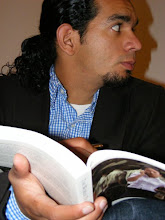
If there has been anything clear in the history of processes of peace, is that the parts in conflict cannot be static about the decisions that they take. At given moments they have to be able to modify their positions, in order to improve its circumstances over the table. Per se a negotiation of peace is a formal conversation in which the parts bargain about its better conditions, considering it’s the strength and weakness as well as those of its opponent. But if we are to judge for the modifications that have taken place during the attempts of negotiation between the Colombian government, over the past four years and the leftist guerrilla movement of FARC, there seems to be that the Colombian government has not understood that in a negotiation of peace, your position cannot be static, for it is the end of the negotiation, or in other words, the formal victory of the guns over the possibility of reconciliation.
From the beginning of the Uribe administration, the Colombian government has been looking for secret contacts that may build confidence with the guerrilla of FARC to the point of setting up a meting where the representative of the parts could discuss face to face their differences, trying to build agreements. However, the parts do not trust each other and seems that won’t ever trust each other. None of them is able to renounce temporarily to its strategic advantages to make possible a conversation of peace, for they both consider that any effort that improve the possibilities of a conversation of peace is a strategic advantage that the opponent is going to capitalize.
For one side, the FARC movement is trying to make public any contact of peace with the government, because their experience is that this is the only way through which the government may feel itself bind to any possible agreement as wells as to respect the guerrilla representatives; whereas the government does not trust any attempt of negotiation that implies public conversations for in their perception it undermines its possibilities of action as the responses of the society to the armed group. Especially considering that the president Uribe won the presidential elections for attacking the former conversations of peace that took place with the former president.
But at the very end of the issue, the FARC and the Colombian government need each other, and could spend the next four years avoiding the strategies of negotiation, but this is only going to degrade the conflict, with its consequent political costs. Both of them need to make efforts that improve the possibilities of an agreement of pace, otherwise, the political myopia will be too expensive to be paid.
Hollman Lozano
hollman.lozano@yahoo.ca













1 comment:
Seguir negociando? eso es un chiste, verdad?
Claro que los gobiernos colombianos han sido DEMASIADO estáticos. Para que negociar?. Para tener otros 40 0 50 años sumidos a los caprichos de la guerrilla?. Negociar es sinónimo de debilidad. Y eso han sido los gobiernos colombianos: DEBILES. Por qué no acabar con esa debilidad y empezar a actuar con mano dura y defender a sus hijos colombianos, como lo hace el gobierno israelí?. Por qué no atacar a esos guerrilleros (FARC, ELN, EPL y toda manifestación de izquierda) como lo hace Israel contra Hezbolá (otra célula cancerina de guerrilla)?
Esa es la reflexión que debe hacerse y la estrategia que debe empezarse a desarrollar en Colombia. Aniquilar, acabar, borrar del mapa, exterminar a cualquier costo a la guerrilla colombiana.
Post a Comment